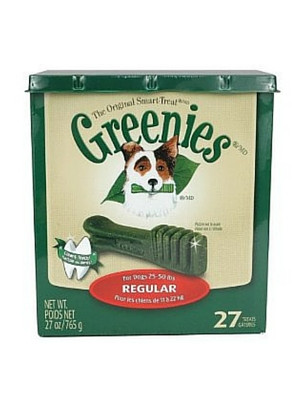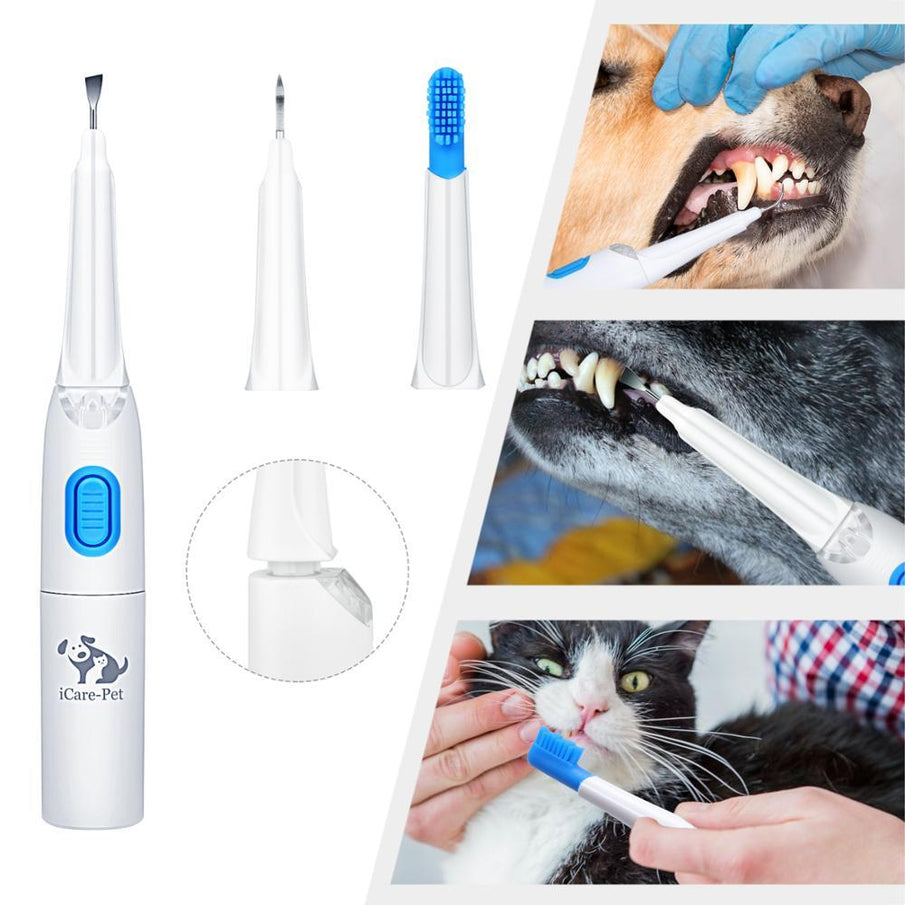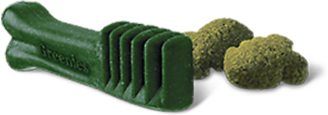Malamute Dental Health
Keeping your dog's breath fresh and teeth shining can be a challenge, but it's not all that hard. And it's important you do maintain them as they affect the entire health of your dog. There are 5 things to do if you want to keep your dog's teeth looking good (and avoid stinky breath)...here's what you can do:
- Start a routine early
- Get professional cleaning if necessary
- Brush, remove plaque
- Gingivitis may develop into a more serious form of periodontal disease called periodontitis, irreversible and can lead to eventual tooth loss
- Bacteria associated with periodontal disease may spread to other parts of the body, such as the heart, lungs, and kidneys.
- Keep the poop eating to a minimum (not always easy!)
Bad breath? Not only yukky to smell, but it could mean your pet has a health problem. Conditions such as kidney failure, diabetes, nasal or facial skin infections, cancers, or situations where the animal is ingesting feces or other materials, can cause bad breath with or without periodontal disease. Bad breath is caused by a bacterial infection of the gums (gingiva) and supporting tissues seen with periodontal disease (the skin around a tooth).
Plaque is a colony of bacteria, mixed with saliva, blood cell, and other bacterial components. Plaque often leads to tooth and gum disease. Dental tartar or calculus, occurs when plaque becomes mineralized (hard) and firmly adheres to the tooth enamel then erodes the gingival tissue. Plaque is bad, but tartar is worse and both damage the teeth and gums. If your dog's gums are inflamed - red, swollen, sore looking the next step is that they could separate fromt he teeth where pockets of bacteria and more plaque and tartar will accumulate. Eventually this vicious circle will result in tooth and bone loss.
I'm sure you've heard how gum disease can cause huge problems in humans like heart disease...well, it does that in dogs too. Infected gums and teeth affect the entire body. Bacteria from these inflamed oral areas can enter the bloodstream and affect major body organs. The liver, kidneys, heart, and lungs are most commonly affected. Antibiotics are used prior to and after a dental cleaning to prevent bacterial spread through the blood stream and can affect dogs of any age - even young dogs. And while dogs may not tell you they are in pain, they probably feel it. I remember once when Shadow cracked a molar...he came over and esp'd to Dan to look in his mouth...lo and behold...cracked molar!
If for some reason your dog loses a tooth somehow - please see your veterinarian as soon as possible to check the pocket and other teeth. Exposed tissue can be very painful and are open to infection. Dog fights are another reason to check teeth. Often teeth can be damaged in a fight. Hoover once broke the entire front row at the bone and broke off both canines. He ended up with "braces" to wire his mouth back together. There wasn't much they could do for the canines except pull them and pulling would have compromised his entire mouth so we just did a "wait and see" thing and were lucky - they never bothered him, never got infected. Dogs do not get abscesses or need root canals as often as humans, but if infection sets in, don't hesitate as the infection can kill your dog. There is a lot of natural anti-bacterial activity in a dog mouth - more than ours, but it can still happen. Don't wait until your pet gets really sick to check it out or it may be too late.
If your pet has a lot of periodontal disease, your vet will likely prescribe antibiotics for a few days prior to the dental. This will reduce the infection in the mouth and the spread of bacteria via the bloodstream. Pets need to be anesthetized for a full dental cleaning. Scaling tartar can be done while awake, but for a thorough oral exam and cleaning, animals must be anesthetized. Scaling tartar on an awake animal, without polishing the teeth, leaves a rough surface to the tooth, predisposing the tooth for more plaque and tartar accumulation. Most vets strongly urge pre-anesthetic blood work to ensure that everything else is OK with your pet's health, as it's dangerous to be put under anesthesia - particularly for an older pet - since there may be unanticipated health issues. It's so much better to keep your pet's teeth clean so they don't have to risk anesthesia just for a cleaning late in life.
With oral surgery or cleaning, your pet will be anesthetized, any medications or fluids will be administered, and the vet or veterinary technician will scale the teeth, examine the gums (and any pockets), extract diseased teeth*, and polish the teeth. The equipment used on your pet's teeth is much like you would find in a human dental office although ultrasound is used more often. If a small tooth has a serious problem, it's probably best to just pull it, but if a canine is involved you'll need to talk to your vet about other options - such as root canals, crowns, etc. and seek a referral to a veterinary dental specialist. Veterinary dental procedures are just as expensive as human ones, so be prepared....
Don't let your dog's teeth get in this state of disrepair! We regularly feed our guys raw deer bones and even the seniors have squeaky clean teeth. There is nothing like a raw bone to keep them plaque free and healthy! If you'd rather take the brushing route, it is important to use products specifically designed for dogs and cats. Do not use human toothpaste on your pet's teeth. Products are available just for dogs and have yummy flavors like beef and chicken! Your veterinarian or veterinary technician can show you the proper techniques for your pet. Some animals do well with a toothbrush, some do not. Other products include finger swabs, tooth 'cloths', and mouth rinses. Talk to your vet about what type of product might work well for your Malamute. Ideally, the teeth should be brushed daily, as with humans. Even once every few days will be a big help.
Be aware of the treats and food you feed as well. Soft foods will gum up teeth faster than dry kibble. Raw is best, but not everyone can feed raw bones all the time. Soft, gummy treats can be especially bad for the teeth - they are soft, sticky, and full of sugar and should be avoided. There are many "dental treats" on the market now to reduce plaque and tartar buildup. Specifically designed dental treats like Greenies are great for keeping teeth clean - just don't let your dog bite off and swallow chunks. Treats such as raw carrots or sweet potatoes for dogs are an even healthier choice.
Koani says brush every
day!
Use a Dog Toothbrush and Toothpaste formulated for dogs, since people toothpaste can upset stomachs if swallowed. (besides dog toothpaste usually has a meat flavor and you'll get more cooperation). Instead of brushing daily, we give lots of large knuckle bones, rawhides and feed dry food (with a little water on it). Though that didn't stop Penny from asking quite often for a "taste" of people toothpaste at bedtime! (She must have thought it freshened her breath after poop-eating). If you're lazy about brushing like I am, giving the dogs REAL raw bones will get them sparkling in no time. During deer season ask your local deer processor to save you some bones to feed raw. You can freeze them. You can safely give a Malamute the leg bones, hip bones, and neck bones if you can figure out a way to cut it up (one neck is WAY too much and your mal will just vomit what he doesn't need!). Never give cooked bones - they'll splinter! The trade off with raw bones is while he'll have sparkling teeth - his legs might get pretty messy from the bones.
Puppy Teeth and Bites
Puppies will sometimes fail to lose their baby or first set of teeth. Often this is the large canines. If these teeth are not lost before 5-7 months of age they prevent the adult teeth from coming in correctly. Crowding pushes the adult teeth too far forward. In Malamutes, a correct bite is where the front teeth fit tightly over and in front of the bottom teeth - they should mesh together perfectly - this is called a "scissors" bite. Common problems are "overshot" or buck teeth, and "undershot" where the lower teeth are in front of the top teeth and wry mouth - where nothing is level. Sometimes you can by the way the puppy teeth look how they will be as adults, sometimes not. Ideally in a puppy you want the teeth slightly overshot because the lower jaw continues to grow after the upper jaw has stopped growing - so a puppy with perfect teeth as a puppy may eventually end up undershot if it's in the lines. If baby teeth don't come out on their own by 6 months of age, it is best if they are removed by your veterinarian to prevent problems at a later date.
Puppy teeth are replaced by adult teeth at arond 4 months old. Adults will eventually have 48 teeth and their molars erupt last, around 6-7 months of age. Overshot, undershot and wry bites are a disqualification because they may inhibit the dog from doing it's job properly. This means in a mother dog, biting through the umbilical cord on her puppies, or just tearing meat from the bone.
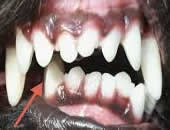
Wry Bite

Undershot bite
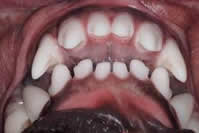
Overshot bite

Scissors bite
Why is bite important? Well, we have one dog with an overshot bite, Pod. Because of her bite, she makes a mess with her water, has difficulty eating certain bones, and her tongue hangs out more than usual because it's an effort to keep it in. I'm sure if she were in the arctic, her tongue would eventually freeze or she would have problems getting enough to eat. As a pet, it's not as big a deal (and none of her pups had this problem, though it is genetic in nature), but this is why correct dentation is important. Also, just like humans, when teeth don't align properly, there is a bigger chance of tartar build up and gum disease which leads to other health problems.
Teeth are an important part of all of us. Keep them healthy and the rest of the body is more likely to remain healthy. Abuse and neglect them, and it leaves the rest of the body open to disease and infection. Take care of your dog's teeth!
What is an Epulis?
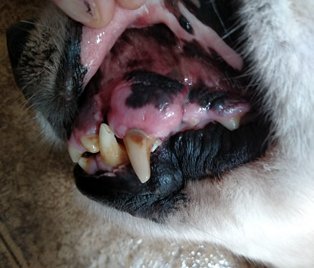 Jazzy at 12 1/2 had these large growths next to her canines. They never really bothered her but after a fight we noticed one side of her mouth was red and bleeding. The vet told us it was an epulis. An epulis is the most common benign tumor of the mouth in dogs. It is usually located in the gum tissue near the incisors or canine teeth. It originates in the connective issue that holds the teeth to the bone of the jaw. The literal translation of "epulis" is "gum boil."There are three types of epulides (the plural for epulis):
Jazzy at 12 1/2 had these large growths next to her canines. They never really bothered her but after a fight we noticed one side of her mouth was red and bleeding. The vet told us it was an epulis. An epulis is the most common benign tumor of the mouth in dogs. It is usually located in the gum tissue near the incisors or canine teeth. It originates in the connective issue that holds the teeth to the bone of the jaw. The literal translation of "epulis" is "gum boil."There are three types of epulides (the plural for epulis):
- Fibromatous: Consists of tough, fibrous tissue.
- Ossifying: In addition to fibrous tissue, also contains bone cells. These may transform into cancerous tumors
- Acanthomatous: More invasive, growing into the normal bone around it and destroying it, but not metastasizing.
The cause of epulides is unknown, but they do occur more commonly in older dogs and Boxers. They occur equally in both sexes. The tumor is usually the same color as the gum tissue, has a smooth surface, and may be attached to the gum via a peduncle (a stalk-like structure).
As the epulis enlarges a dog may drool, have difficulty eating or lose his appetite, have bad breath, bleed from the area of the tumor, or even have trouble breathing depending upon the size and location of the tumor. It may push apart and misalign the adjacent teeth. There is often more than one epulis present.
In Jazzy's case, it didn't really bother her at all...just sort of looked funny when you looked in her mouth or when she was stupid enough to pick a fight with Simone, she'd bite it by accident and make it bleed. Since her age meant we wouldn't likely do surgery anyway, we didn't do a biopsy to determine if it was malignant as most are not. A pathologist typically would examine the tissue microscopically to determine if it is an epulis, and of what type. Other oral tumors include squamous cell carcinoma (malignant), and other benign tumors such as fibromas, lipomas, and histiocytomas. 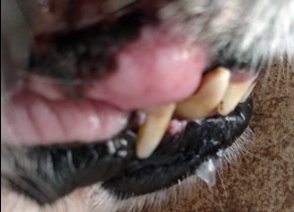
Surgery is necessary to remove the epulis. A wide margin (large portion of healthy tissue around the tumor, possible including some bone) needs to be taken to make sure all of the epulis is removed. If a portion remains, it will often regrow. The teeth next to the epulis usually need to be removed, as well - another reason we didn't pursure surgery since it was next to the canines which would have meant a massively invasive surgery on a 12 1/2 year old dog who might not survive it or have it grow right back..
In a younger dog large epulides may also be treated with radiation, but the radiation can make it malignant.
If the epulis is small and all of the tumor is removed, the prognosis is good. The larger the tumor, the more likely a recurrence or complications. Acanthomatous epulides have a more guarded prognosis since they are much more difficult to completely remove.
Videos:
More information & Helpful links...
Good links...
American Veterinary Dental College - Good articles about pet dental health
Emergency Dentists USA blog - lots of good info

